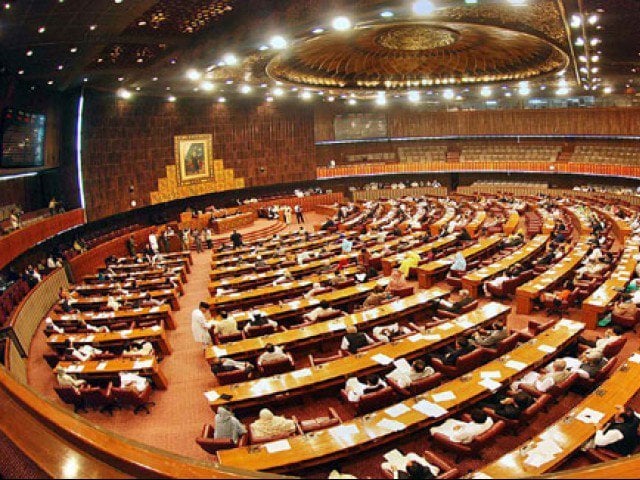
The session is expected to be stormy after the combined opposition had cried foul over perceived rigging in the general elections and blamed the Election Commission of Pakistan for failing to conduct transparent polls.
The opposition parties are claiming that their mandate has been stolen. While rejecting the election results, they vowed to agitate the issue both in parliament and out on the streets.
On Saturday, the top leadership of the Pakistan Peoples Party (PPP) and Pakistan Muslim League-Nawaz (PML-N) finalised a joint strategy to be followed during the election of the prime minister as well as the National Assembly speaker and deputy speaker.
According to the agenda, elected lawmakers will take oath during the session to be part of the National Assembly for the next five years. Speaker Ayaz Sadiq will take oath from the newly-elected members of the Assembly.
PTI gets lion's share of reserved seats in NA
The first session will have two important activities in the ongoing week that will take place in two phases. In the first phase, speaker and deputy speaker of the house will be elected on August 15 (Wednesday).
The election for the leader of the house or prime minister is likely to be held on August 16 or August 17.
Constitutionally, Ayaz Sadiq is still speaker of the lower house until the selection of his successor. Then, the new speaker will take the charge and hold the election process for the deputy speaker. The election of both seats would be carried out through secret balloting.
Speaker
According to the rules of business of the house, the outgoing speaker (Ayaz Sadiq) will hold the election process for the incoming speaker.
The Pakistan Tehreek-e-Insaf (PTI) has nominated Asad Qaiser for the post of the speaker, while the joint opposition, comprising 11 political parties, has fielded Syed Khursheed Shah for the post and Maulana Fazlur Rehman's son Asadur Rehman for the post of deputy speaker.
As per the rules, if there are two candidates for the chair of speaker, then the one who secures more votes will be declared to be elected. Similarly, if both secure an equal number of votes, a fresh ballot shall be carried out until one of them secures more votes.
A breakdown of reserved seats for women, minorities in NA
And the outgoing speaker will take oath from the newly elected speaker and hand the charge of the house over to him. The newly-elected speaker will hold a similar secret balloting process for the election of the deputy speaker and after his or her election the latter will take the oath.
The speaker is considered custodian of the house and as per the rules he is supposed to preserve the order and decorum in the house and in case of disturbance or disorder in the galleries, may cause them to be cleared.
And subsequently, in the absence of speaker, deputy speaker will have those powers to run the house.
Prime Minister
Similarly, the prime minister will then be elected as leader of the house and voting for him or her is held in open where galleries are designated with alphabets for the name of each candidate and those supporting a certain candidate can enter that gallery.
Leader of the opposition
After the election of the leader of the house, the speaker will inform the members about the date, time and place for the submission of a name for the leader of the opposition in the house under their signatures.
The speaker will declare a member leader of the opposition having the greatest numerical strength after verification of the signatures of the members.
Shehbaz Sharif is the joint candidate of opposition parties for the post.
After the notification on reserved seats by the ECP, the PTI tally reached 158 members in the National Assembly after it secured 28 reserved seats for women and five for non-Muslims.
The PML-N total strength has reached 82, the PPP 53; the MMA 15; the MQM-P seven; the PML-Q five; the BAP five; and the BNP four seats.
The National Assembly has 342 seats. Of these, 272 are filled by direct elections. While the reserved 10 seats for minorities and 60 seats for women are filled by proportional representation among parties.

















COMMENTS
Comments are moderated and generally will be posted if they are on-topic and not abusive.
For more information, please see our Comments FAQ